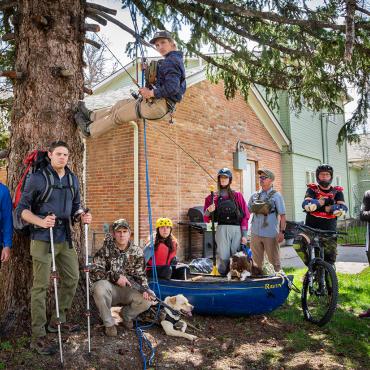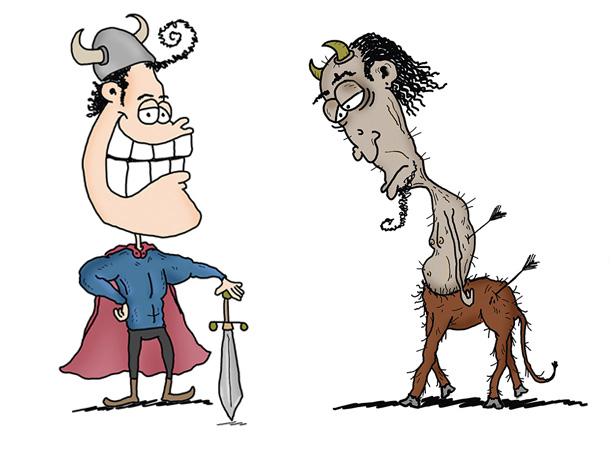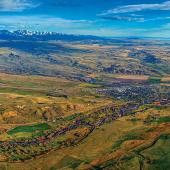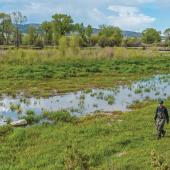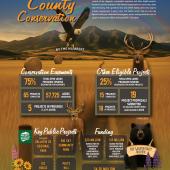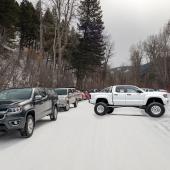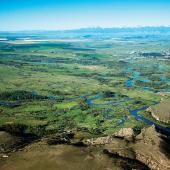Champs & Chumps: Spring 2023
We’ve seen it time and again in Montana: legislators who feign support for the public’s interests, but once in office crawl right back to their private lairs. They’re the ones who parade into Washington on horses and shout “public land” from rooftops, without actually backing up their pageantry. Yep, we’ve got the crème de la crème here in Montana, and they deserve to be called out. But for all the snakes in the grass, there are those who refuse to be rattled at. And, as we’re discovering, it takes the work of thousands of citizens and the support of scrappy nonprofits to fight the actions of a few poisonous individuals—and these folks are lacing up their boots for the long haul. Let’s take a closer look at a few of each kind.
Chumps
Last year, the Montana Land Board approved Montana Fish, Wildlife, & Parks’ purchase of important wildlife habitat, with a parcel near Mount Haggin and another in the Big Snowies. The latter improved access to 100,000 acres of otherwise inaccessible or difficult-to-access public land. In both cases, Montana Attorney General Austin Knudsen voted against the acquisitions, saying, “I do think FWP has got an empire-building problem.” Excuse us? An empire? Land owned by FWP is in the public domain, so Knudsen is taking issue with projects that benefit public, rather than private, interests. Which shouldn’t come as a surprise. Last year, Knudsen blocked a citizen ballot initiative to give the Gallatin River an “Outstanding Resource Water” designation, as well.
In the ongoing saga of questionable motives, Heroes & Horses closed off access to hundreds of acres of public ground outside of Virginia City, by erecting a gate on Adobetown Road. Luckily, the public rose up and got the county to deny the group’s petition to abandon the road. (The fact that several of the H&H program participants beat up a hapless couple outside the Pioneer Bar may have helped galvanize opposition.) Despite the decision, Heroes & Horses still commenced with construction of a gargantuan gate and other structures well within the public-access easement. In case they need a reminder, the definition of public is: “accessible to or shared by all members of the community.”
Champs
Since its inception, Backcountry Hunters & Anglers has been an invaluable asset in the fight for public-land access. These folks marshal the voice of conservation-minded hunters and anglers from across the country, and consolidate it around certain pressing issues. They rallied the troops around a poorly planned land swap in the Crazies and created a coalition to intervene in United Property Owners of Montana’s elk-management lawsuit against FWP. The Wyoming chapter also raised funds for the legal defense of the four hunters charged in Wyoming’s corner-crossing case. Their list of access efforts goes on—keep up the good work, BHA.
When Heroes & Horses shut the gates, the Public Land Water Access Association (PLWA) stepped in, taking up the side of the public. Thanks to this tenacious nonprofit, the room was packed during the road-abandonment hearing, and the H&H petition was denied. Also invaluable are resources like OnX maps, which puts land-ownership information at our fingertips—literally. Having the knowledge of where you can and can’t go gives recreators all the more power when chumps try to block access.
Both Champ & Chump
There are good guys, there are bad guys, and then there are those who seem to be a little of both. On the one hand, the Montana Fish and Wildlife Commission gets a nod for voting unanimously for both the Mount Haggin and Big Snowies wildlife-habitat acquisitions—a consensus that goes a long way toward persuading the Land Board to also give its approval (Knudsen’s cronyism notwithstanding). On the other hand, they screwed the pooch with the Madison River Work Group, a 12-person committee tasked with analyzing recreational use on the Madison. The committee presented several recommendations on alleviating and dispersing pressure, but the Commission sluffed off their responsibilities to the Environmental Quality Council, saying the problem required a “legislative solution.” Great, let’s get the politicians in Helena to make hard, fast rules about how we recreate on our region’s signature river. Besides, that’s the Commission’s only job: to set regulations related to fish and wildlife. If regulating anglers and fishing pressure on the Madison doesn’t qualify, what does?


